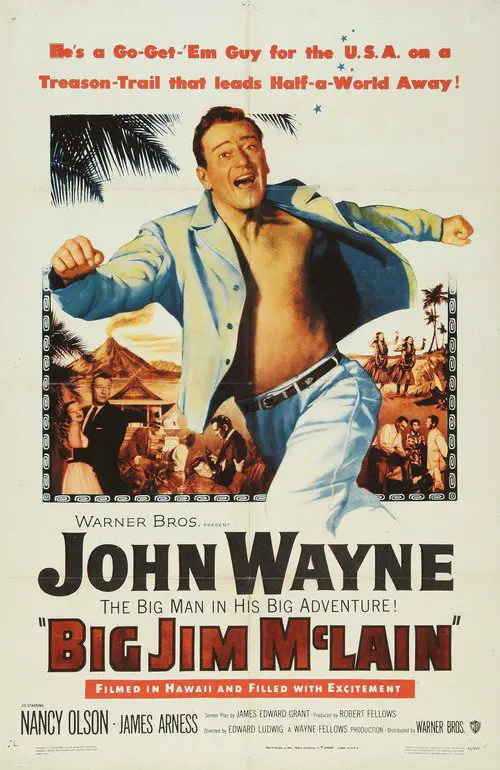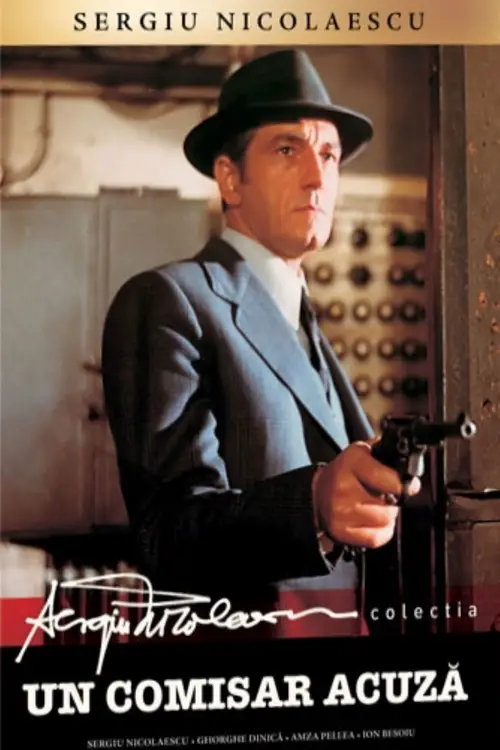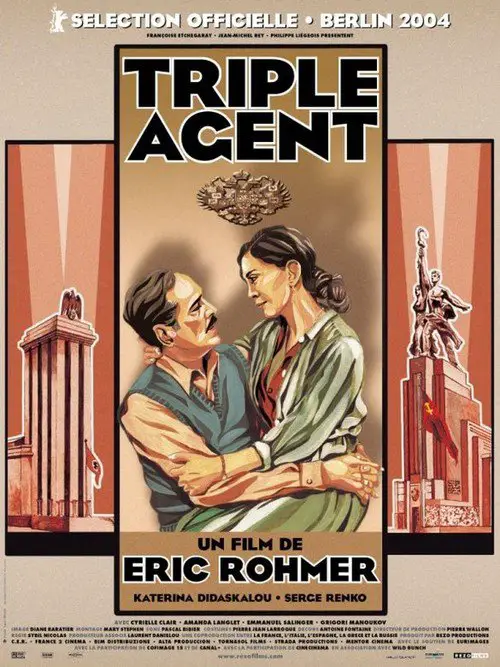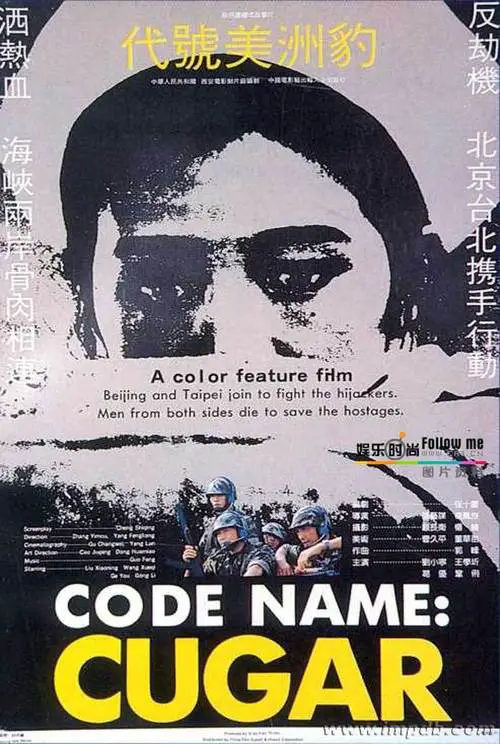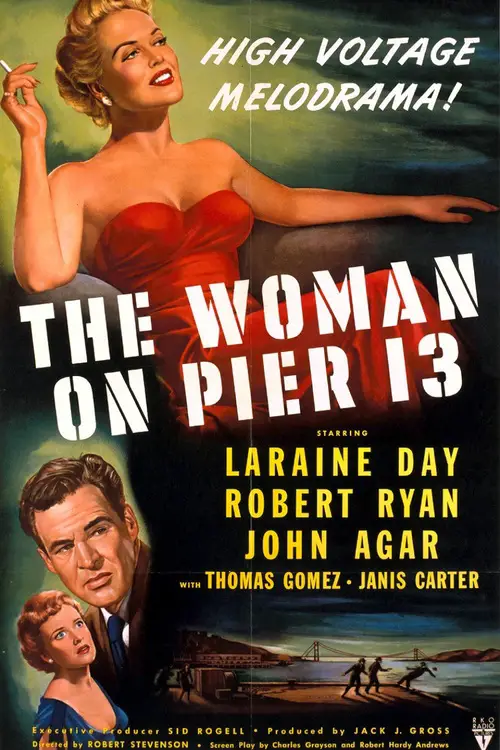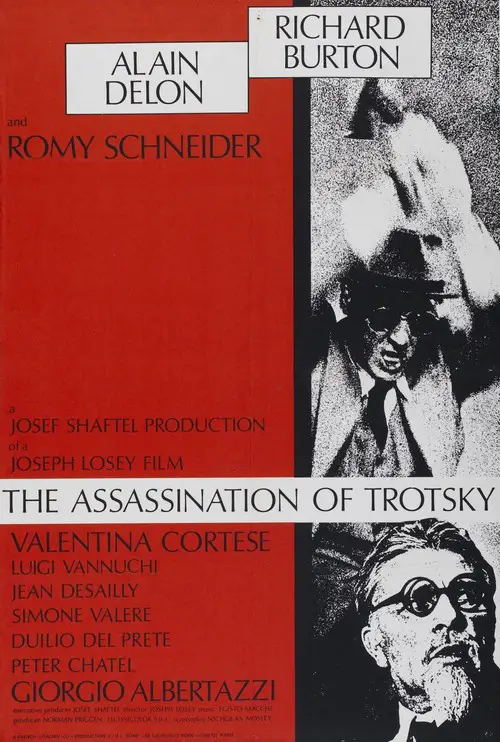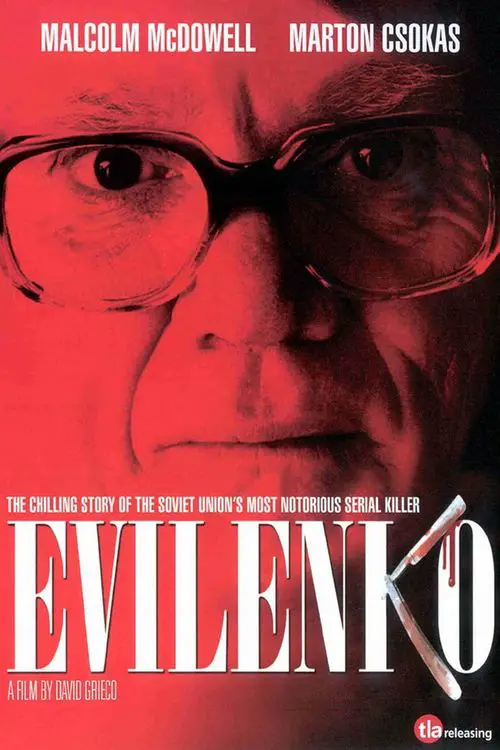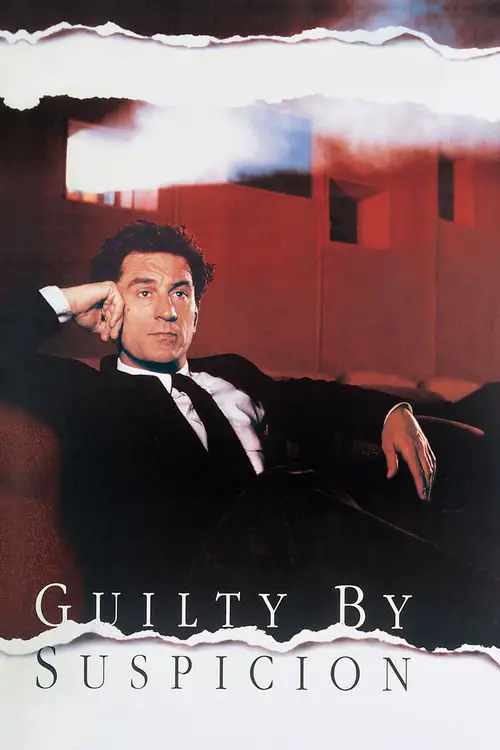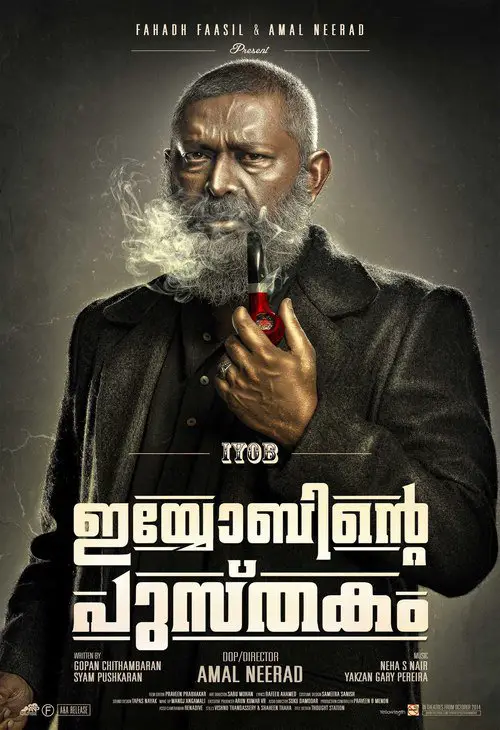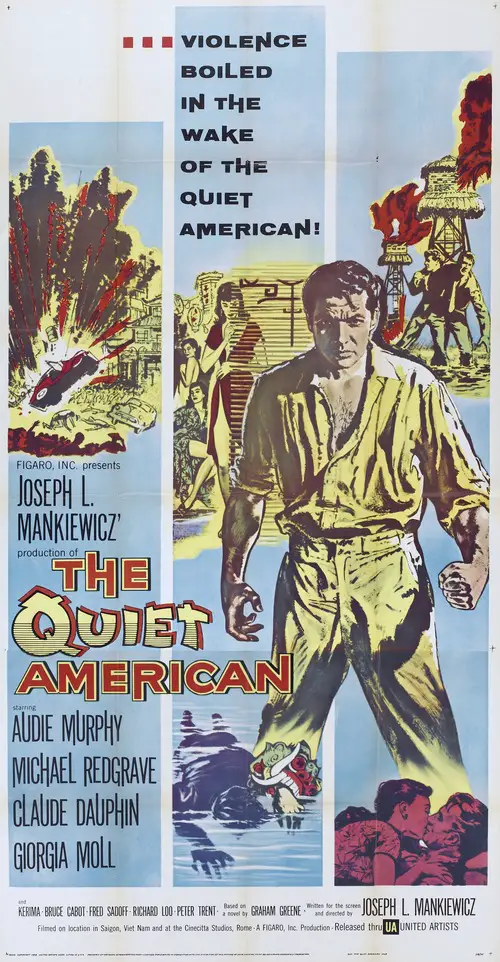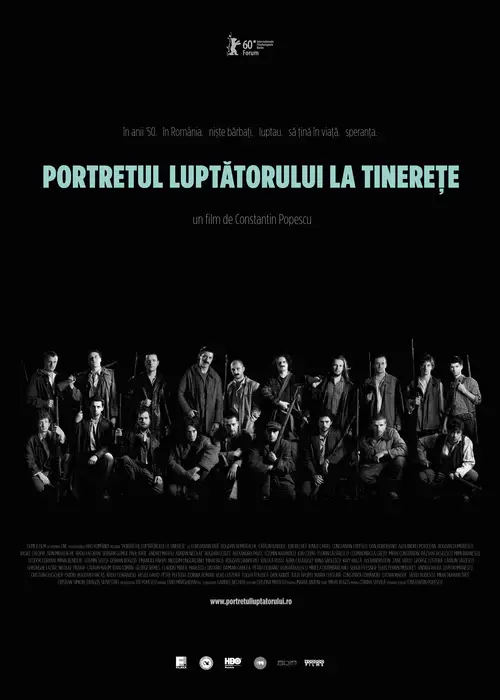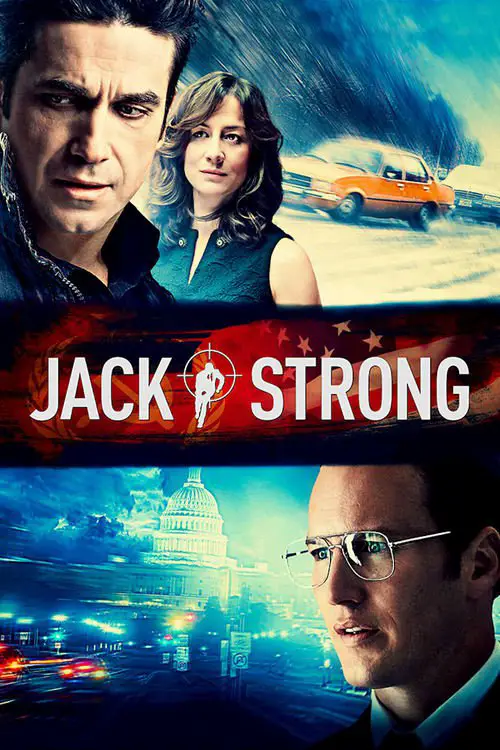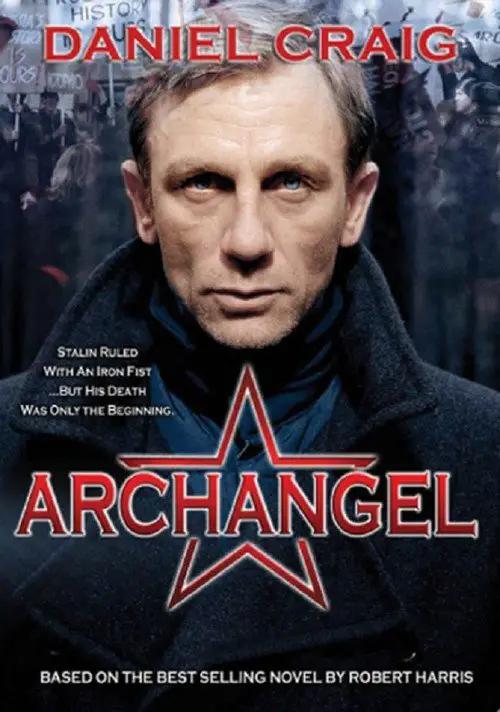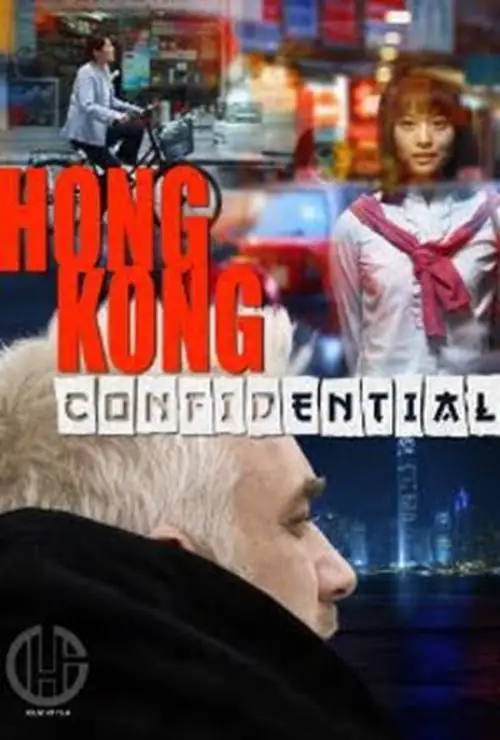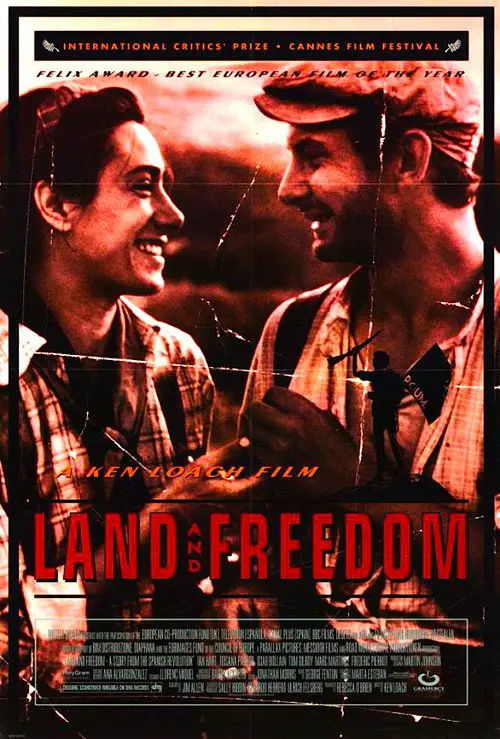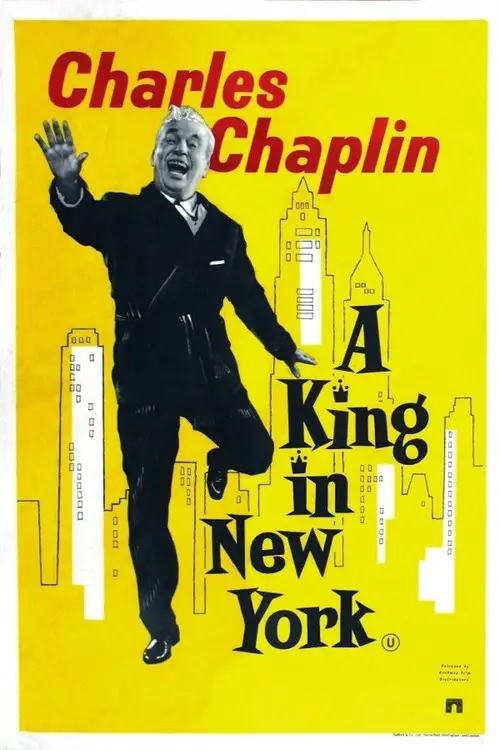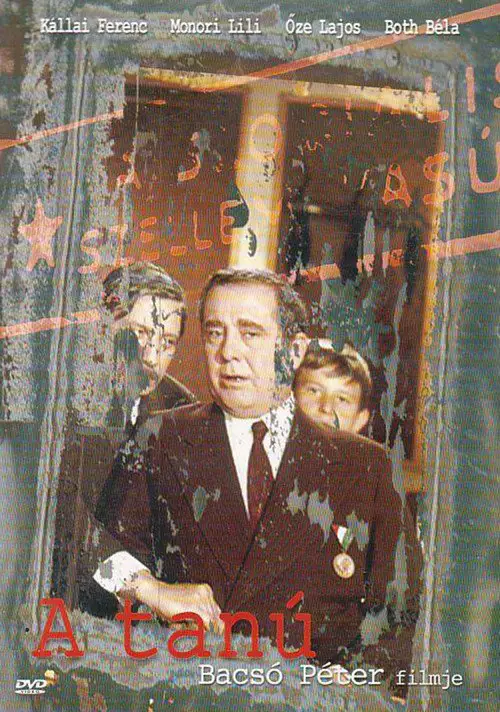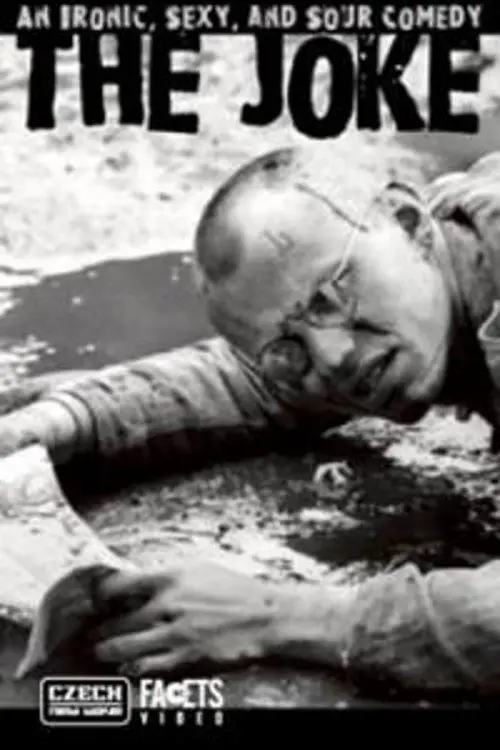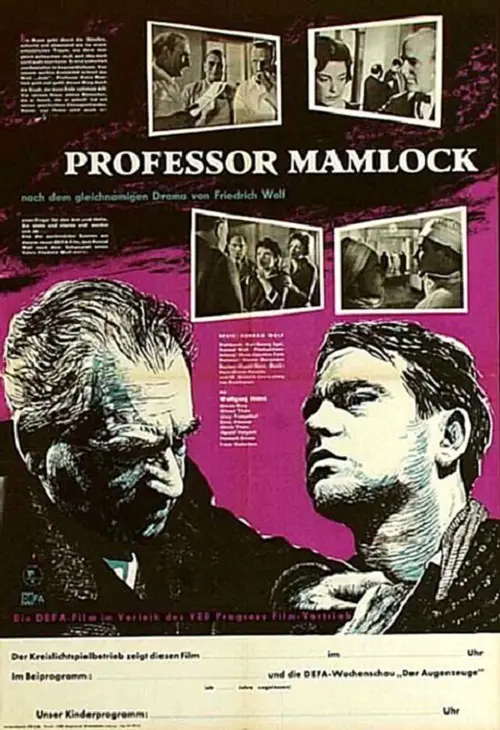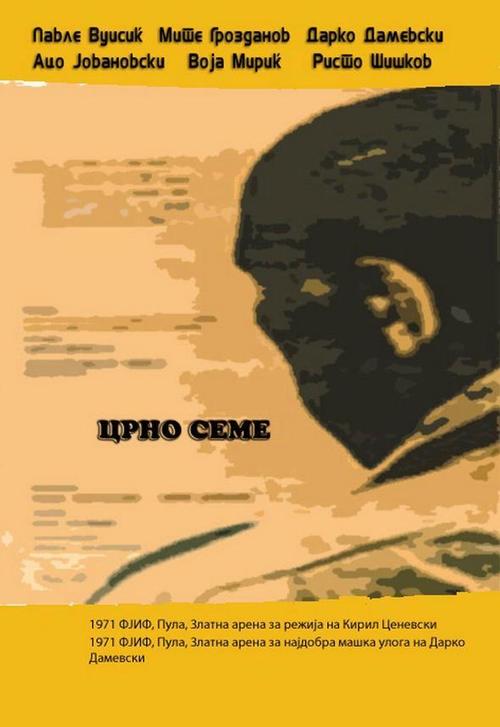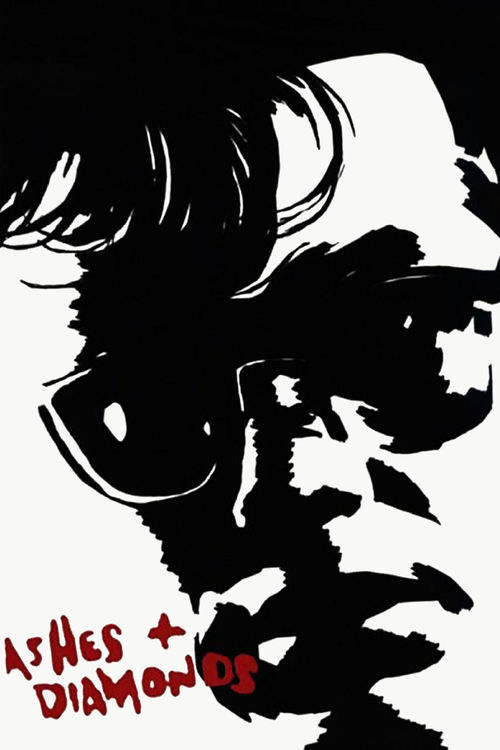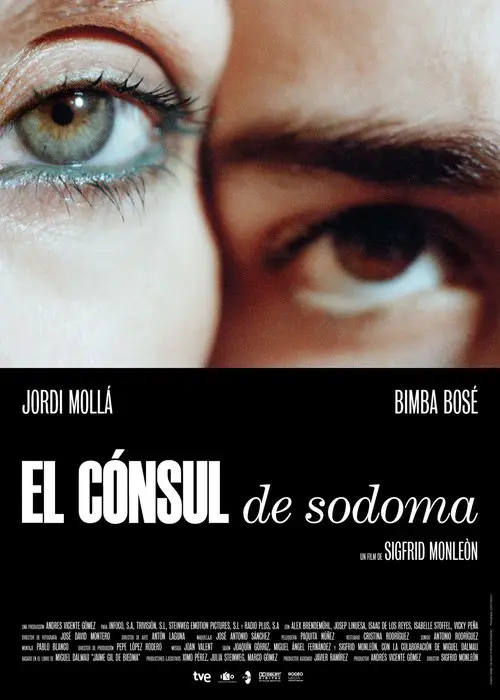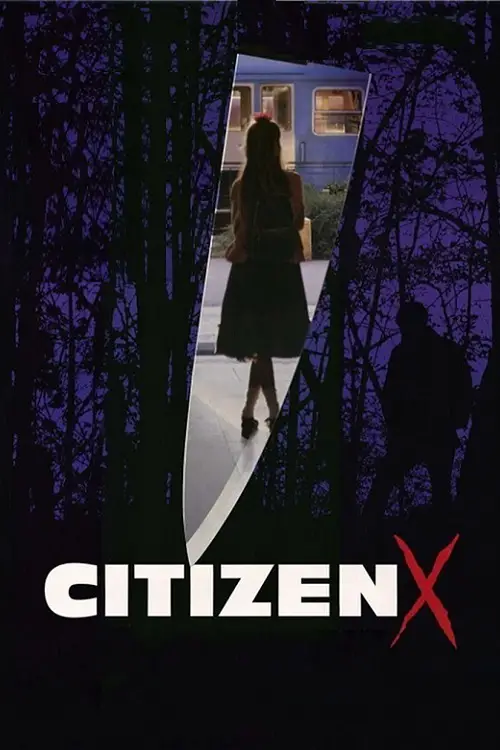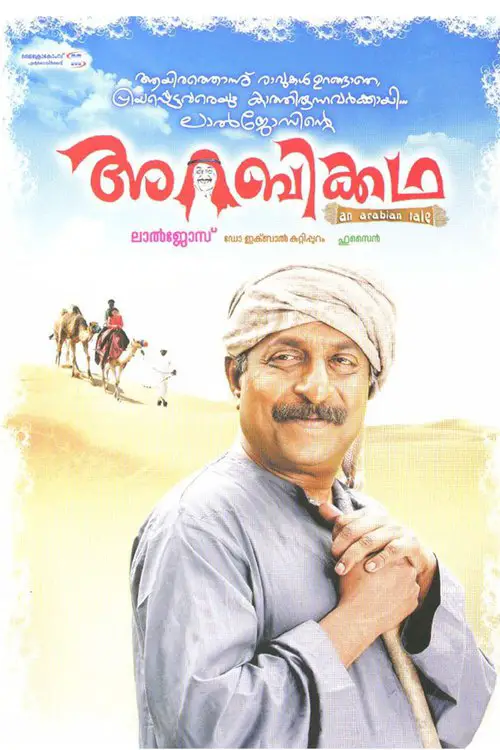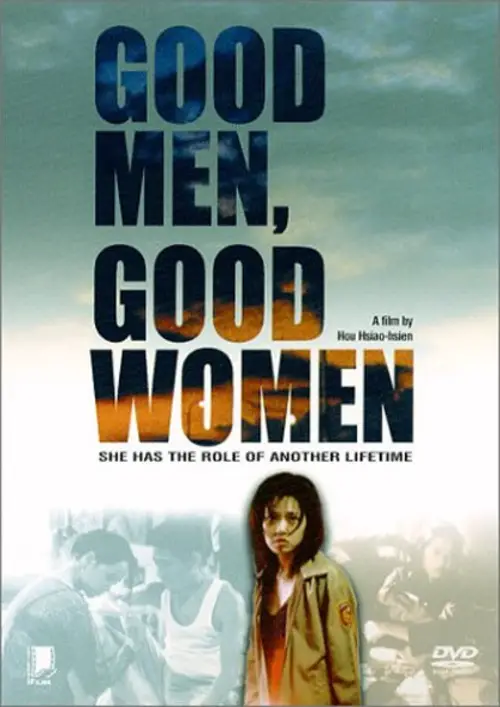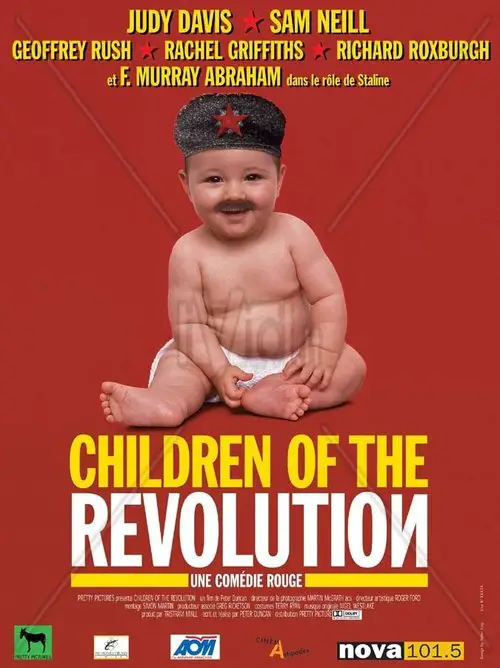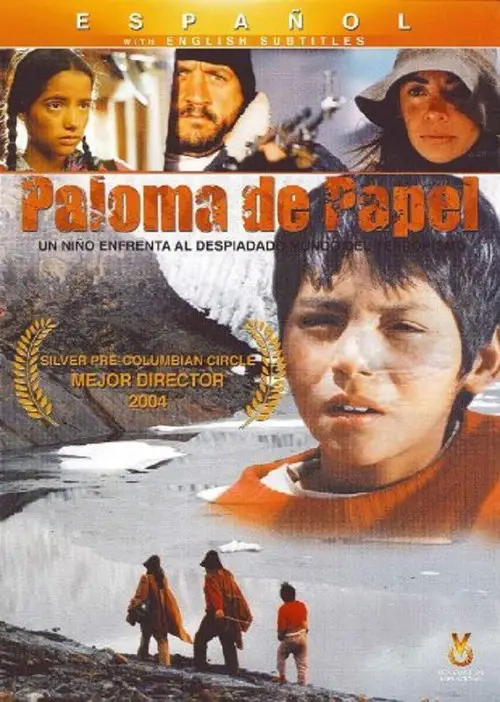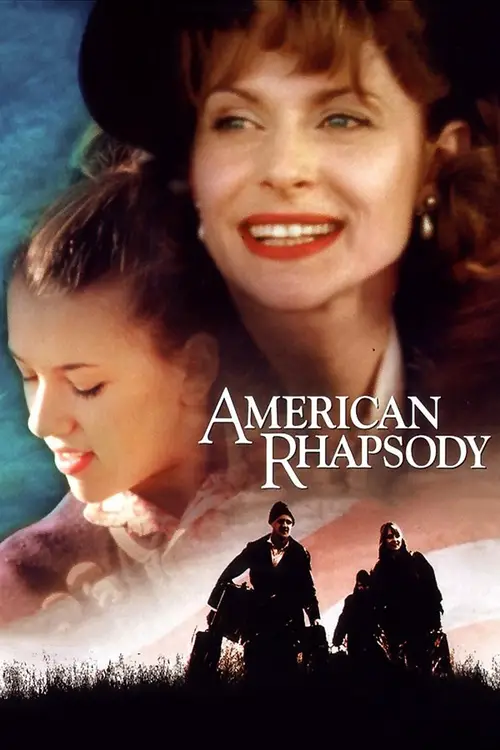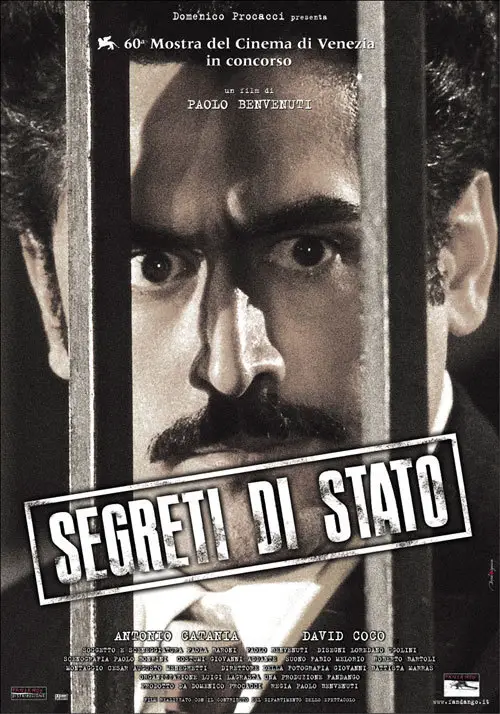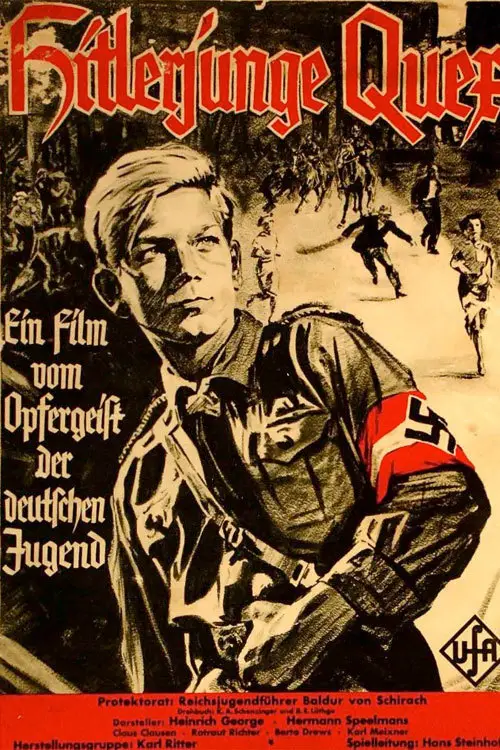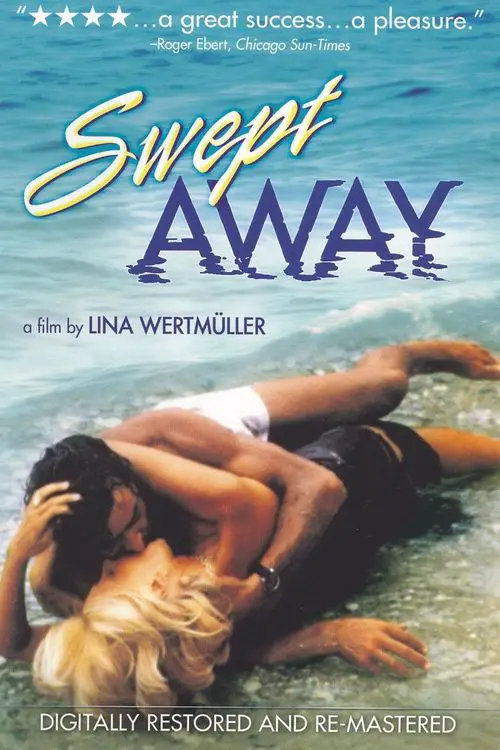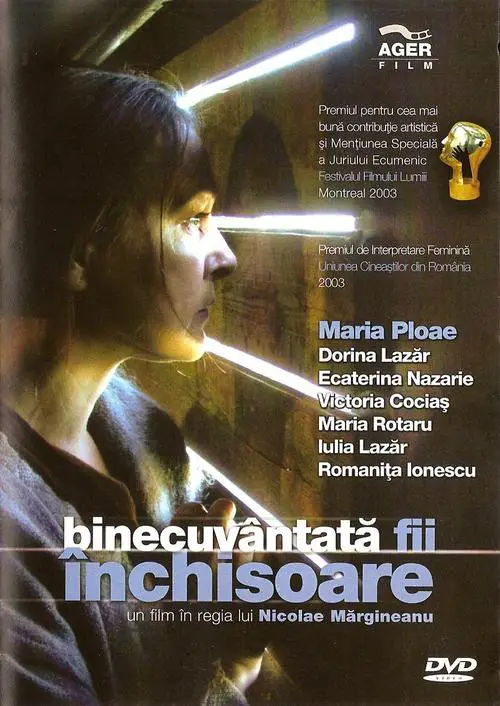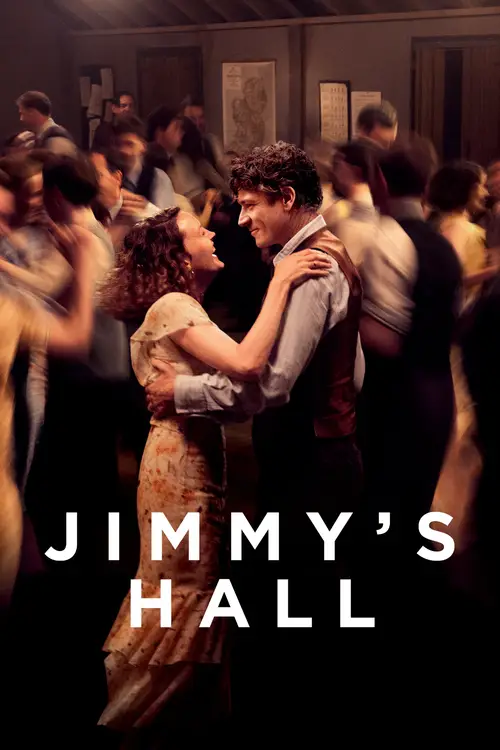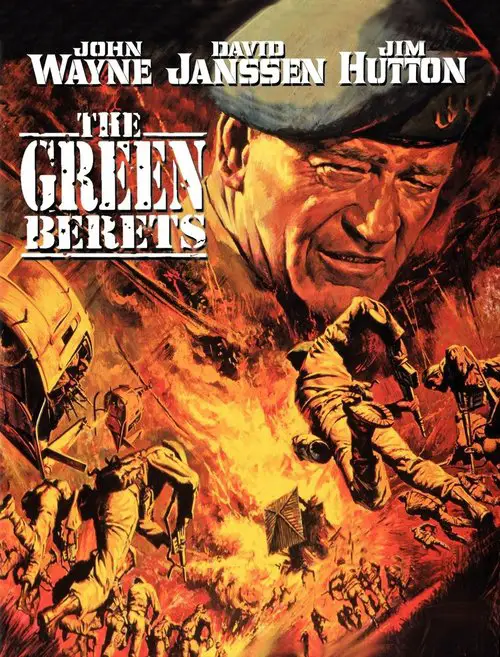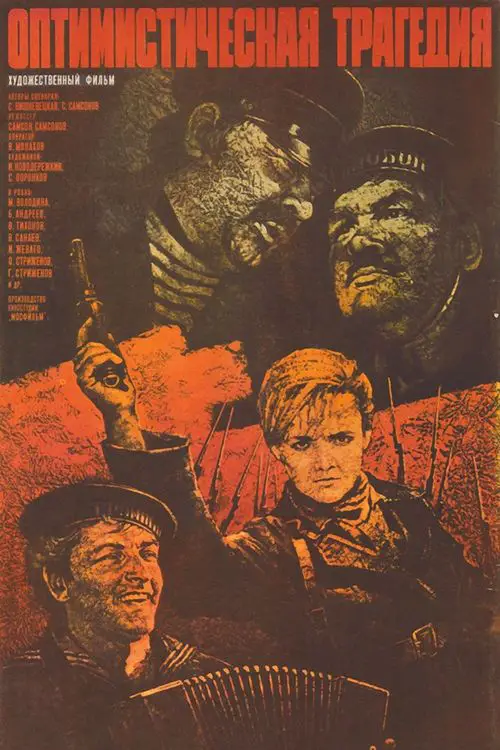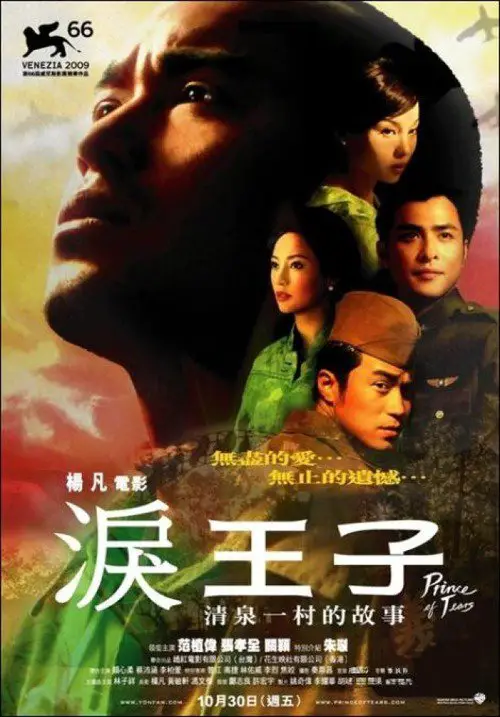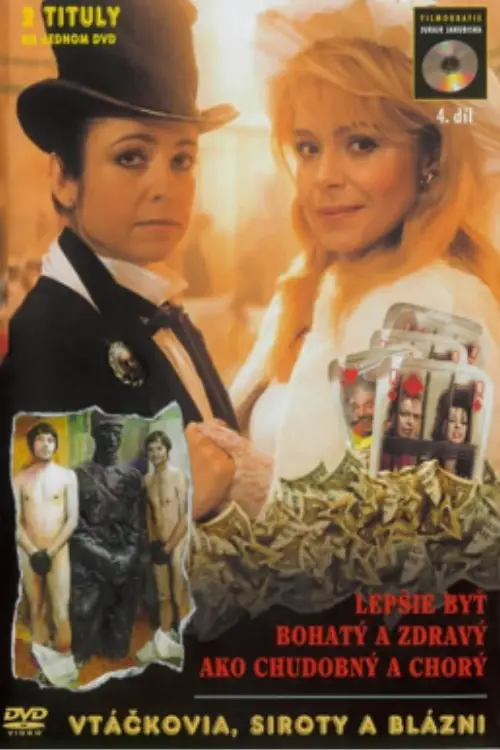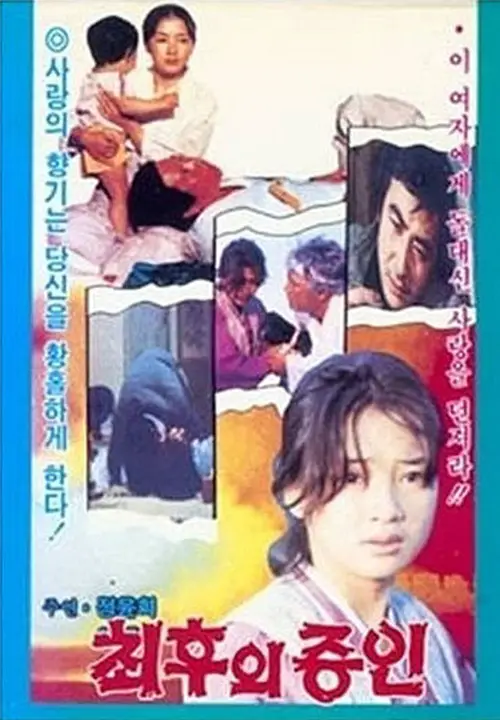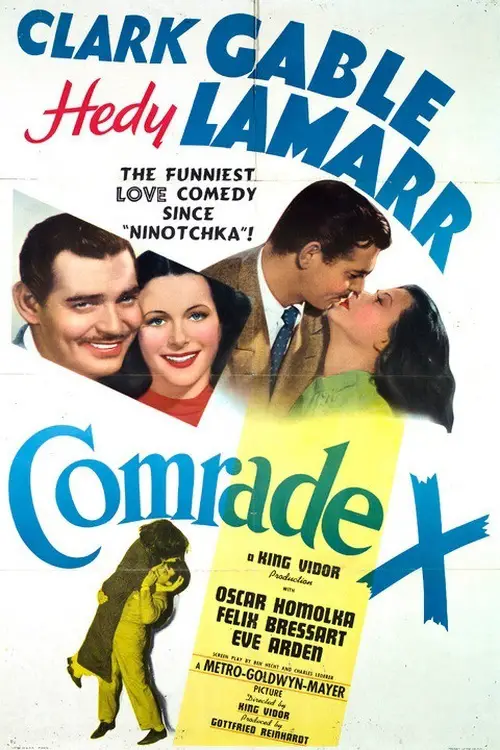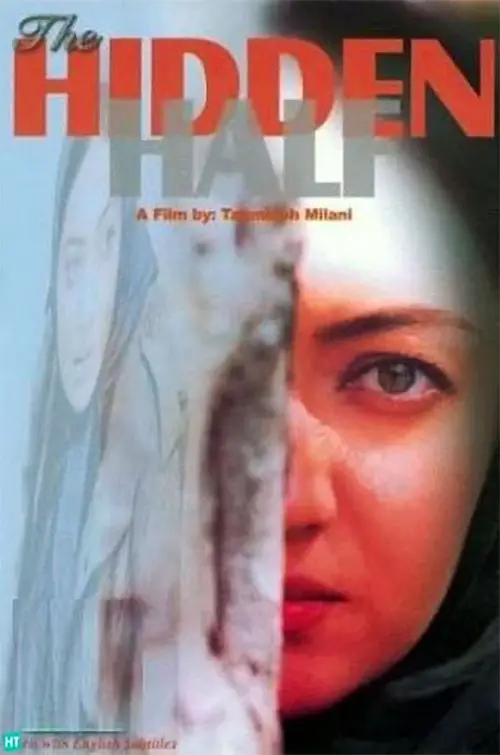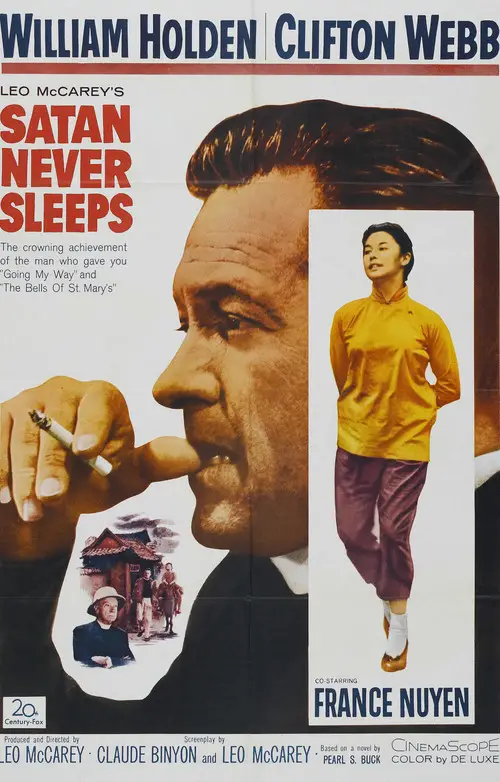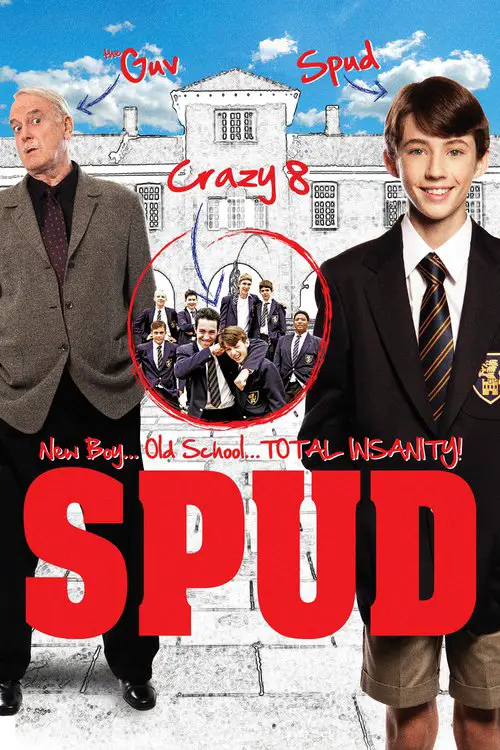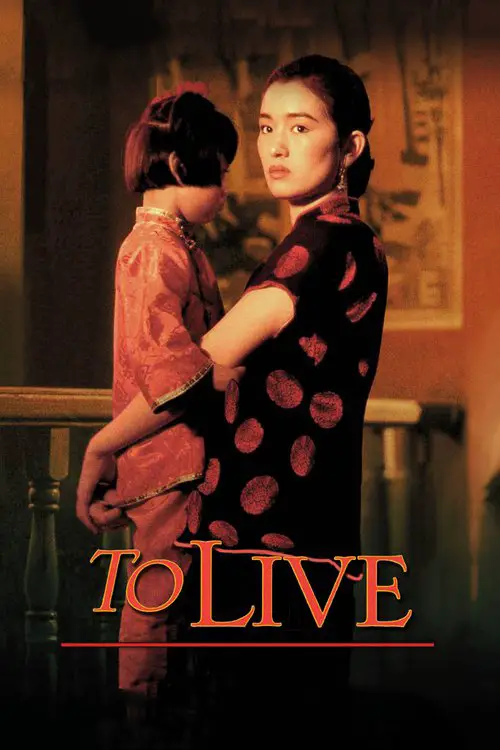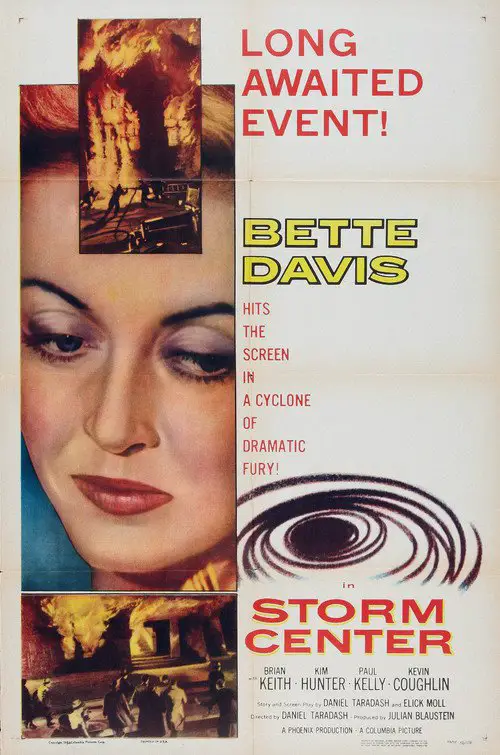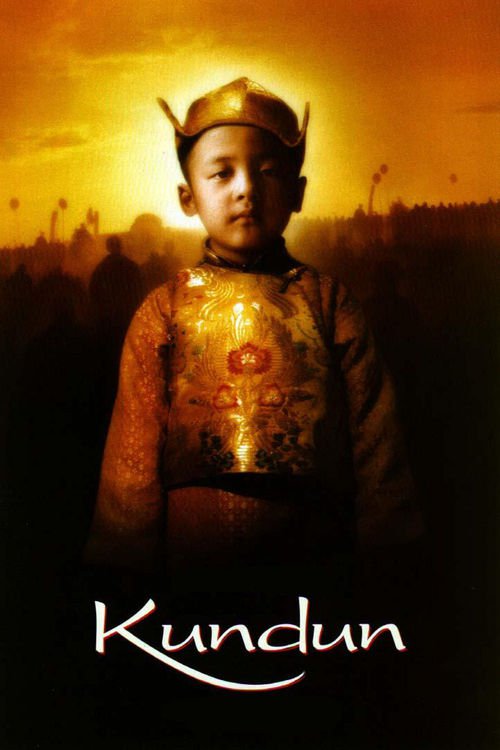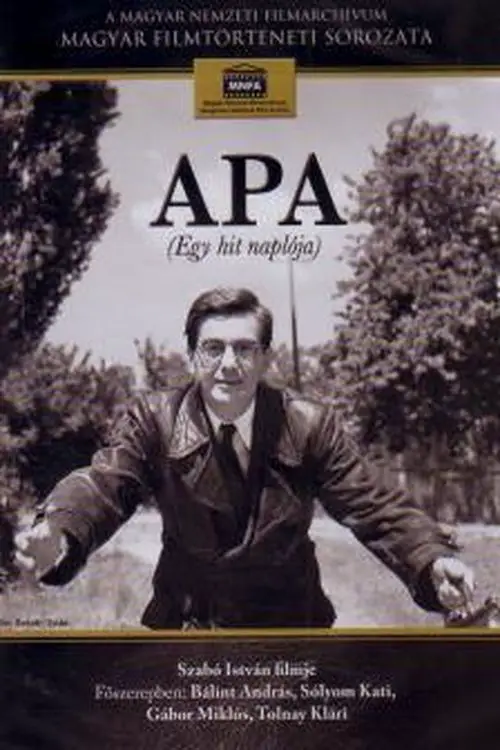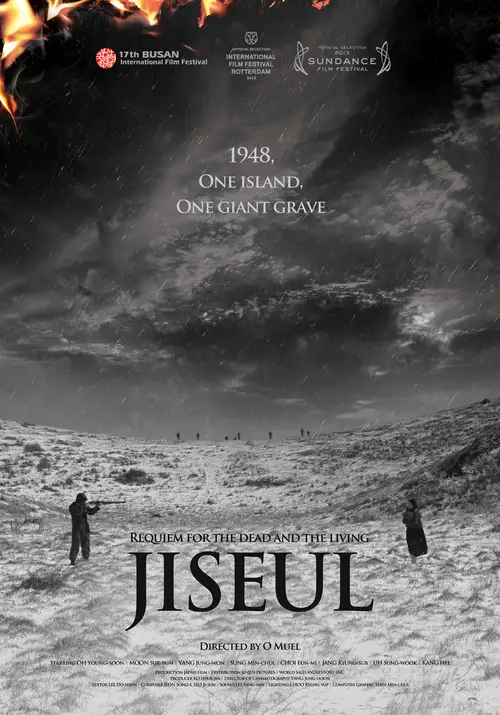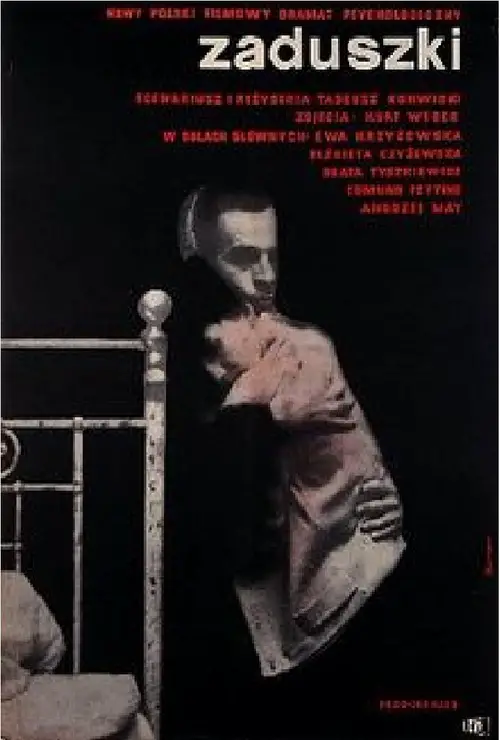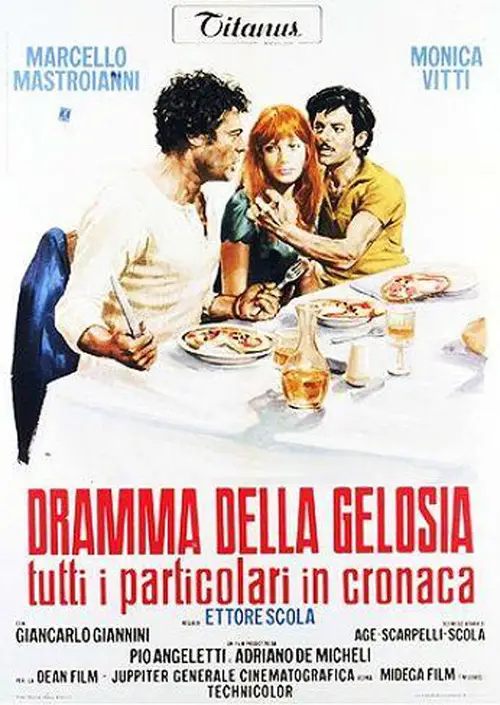Hong Kong Confidential (1958)
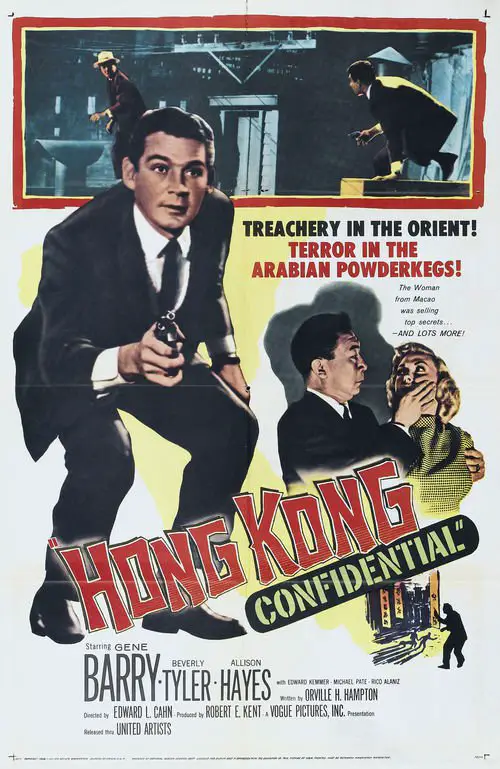
Similar movies
The Iron Guard, also known as Legion of Archangel Michael, was a Romanian nationalist and patriotic movement of extreme right; as such, after it rose to power, it supported Nazi Germany and started a fierce campaign of retaliation against its political enemies. As such, in the night of November 26-27, 1940, the Death Teams executed forty political prisoners in the Jilava prison (in the movie, named "Viraga"), and next day, other two Teams arrested and shot the former minister Virgil Madgearu and the world famous historian Nicolae Iorga. To squash down the political outcry, the Police Prefect Stefan Zävoianu conveniently assigns the cases to a commissioner from the "Morals Division" (prostitution, thieves), Tudor Moldovan, hoping that he will fail to get to the bottom of the case. However, Moldovan has communist sympathies, so he quickly comes under the influence of the Bolshevik Pîrvu, who had escaped during the Viraga...
The Popular Front wins elections, the Spanish Civil War begins, and Hitler and Stalin are manipulating and spying. The brilliant exile, Fiodor Voronin, a general at 20, is the deputy at the White Russian Military Union, probably slated to replace the aging Général Dobrinsky soon. Fiodor's Greek wife, Arsinoé, paints and stays away from politics, befriending Communist neighbors. Her health declines; the attentive Fiodor arranges care and, against the backdrop of Stalin's Great Purge, considers his options. He plays a chess game in which love of country, love of Arsinoé, ideology, petty jealousies, and the machinations of power roil in matters of life and death.
The film follows a commercial airliner on a routine flight between Taipei and Seoul that is hijacked and taken to mainland China by the fictional Taiwan Revolutionary Army Front. Communist authorities cannot seize the plane because of the presence of an important business figure on the flight, and agree to cooperate discreetly with Taiwanese authorities to defuse an already tense situation.
Moth is freed on parole after spending time in prison on wrongful conviction of murder. Jailed shortly before the Bulgarian communist coup of 1944, he now finds himself in a new and alien world - the totalitarian Sofia of the 60s. His first night of freedom draws the map of a diabolical city full of decaying neighborhoods, gloomy streets and a bizarre parade of characters.
In 1984, in Kiev, the communist teacher Andrej Romanovic Evilenko is dismissed from his position after a pedophilic act against a student. On 15 May 1984, the pedophile Evilenko begins to rape children, and then slashing the victims in pieces and eating them. The magistrate family man Vadim Timurouvic Lesiev is assigned to catch the serial killer and almost eight years later he finally captures the monster that killed fifty-five persons, most of them children and young women. On 22 May 1992, Evilenko goes to the court and on 14 February 1994 he is finally executed.
This compelling story vividly recreates Hollywood's infamous 'Blacklist Era'. The witch-hunt has begun and director David Merrill (De Niro) can revive his stalled career by testifying against friends who are suspected communists. Merrill's ex wife (Bening) shares a whirlpool of scandals that draws them closer togheter while his chances for ever making movies again slips further away...
Cynical British journalist Fowler (Michael Redgrave) falls in love with a young Vietnamese woman, but is dismayed when a naïve U.S. official (Audie Murphy) also begins vying for the girlâs attention. In retaliation, Fowler informs the communists that the American is selling arms to their enemy. Director Joseph L. Mankiewicz's drama paints a rosier picture of U.S. involvement in French Indochina than Graham Greeneâs provocative 1955 novel.
When the Soviet Army marched into Romania in 1944, a part of the Romanian population went âinto the mountainsâ â a diverse assortment of nationalists and fascists, liberals, apolitical farmers and members of the middle-class, who were affected by the Communistsâ expropriations. Over a thousand armed resistance groups took refuge in the inaccessible forests of the Carpathian Mountains where they waited in vain for the support of the Western Allies. One of them was led by Ion GavrilÄ-Ogoranu, who managed to remain undetected until 1976 when he was arrested. This film depicts the daily existence of this group. It tells the story of a struggle that became an end in itself, as the enemy was constantly in pursuit and arrest meant torture and often liquidation. Hungry and emotionally withdrawn, the group of young men got entangled in a partisan war that could not be won, lost in the landscape of the South Carpathians, accompanied by a vigilant secret police, the Securitate.
A spy thriller telling a historically based story of a man who alone dares to challenge Soviets being in the middle of the communistic system himself. Planning the maneuvers of Warsaw Pact forces he discovers that the American plans of nuclear counterattack against Soviet forces is planned to be executed on Polish territory. Thanks to his determination he starts a long, lonely and psychologically exhausting cooperation with CIA. From that moment the life of his and his family is in danger as one careless move can lead to tragedy.
Set in contemporary Moscow and the frozen northern town of Archangel, the drama revisits the stark landscape of Communist Russia and takes place over four days in the life of academic Fluke Kelso. His fateful meeting with a former Stalinist bodyguard leads to the uncovering of one of the world's most dangerous and best kept secrets. He is led unwittingly through murder and intrigue towards his own personal "Holy Grail" - Joseph Stalin's secret legacy - a legacy that could change the face of Russian history forever.
The movie narrates the story of David Carr, an unemployed worker and member of the Communist Party of Great Britain. In 1936 he decides to fight for the Republican side in the Spanish Civil War, an anti-fascist coalition of liberals, communists and anarchists. Similar to George Orwell's experiences documented in Homage to Catalonia, he joins the POUM worker militia and witnesses first hand the betrayal of the Spanish revolution by the Stalinists, loyal only to the dictat of Moscow.
Known as the best satire about communism, banned for over a decade in Hungary. 'The Witness' has become a cult classic, well received by critics and general audiences when it was finally released outside of Hungary. 'The Witness' takes place during the height of the Rákosi Era, which was closely modeled after the ruthless and brutal Stalin regime. The film follows the life of an ordinary dike keeper, József Pelikán, who has been caught for illegally slaughtering his pig, Dezsõ. Instead of doing hard time for his "heinous" crime, Pelikán is elevated into an important position, generally reserved for the communist elite. His new benefactor, the mysterious Comrade Virág, is reluctant to reveal the real reason behind Pelikán's preferential treatment. Thus, begins Pelikán's hilarious adventure deep within the "sophisticated" communist society... Until one day, when he gets called for to return the "favour" by falsely testifying against his long-time friend in a mock-up show trial.
Professor Hans Mamlock is the distinguished chief of surgery in a university hospital. The year is 1933, and although the Professor is Jewish, he remains unconcerned with politics and the growing Nazi threat. Mamlock identifies strongly as a German, and he believes his culture to be simply incapable of the common barbarism associated with the Nazi party. Accordingly, he shows little understanding for people with strong or unpopular political views, such as Walter, a patient, and Rolf, his own son. Indeed, when Rolf joins the communists in resisting the Nazis, Mamlock throws him out of his house. As the persecution of Jews intensifies during the 1930s, Mamlock's own daughter is targeted for anti-Semitic attacks at her school...
Young Park Seol-Hee is eagerly planning her wedding to a young anti-Communist activist when the North Koreans invade. Her fiancé is forced to flee, leaving her behind with her family in their tiny, rural South Korean village. Rather than resist the North Korean regiment that comes to occupy the area, the townspeople (to Seol-Hee's dismay) decide to cooperate with them in order to ensure their own survival. The North Koreans, however, turn out not to be all that Seol-Hee expected. She soon realizes that there is a history between her family and that of the regiment's leader, Lieutenant Kim Jeong-woong. In between the hilarious day to day antics of Seol-Hee's eccentric family and the hard realities of war, the attachment between Seol-Hee and Jeong-woong grows. As the occupation continues, Jeong-woong becomes torn between trying to follow the increasingly harsh orders from his general and protecting the people that he has come to love and care for so much.
Maciek and Andrzej, two home army fighters, were paired and ordered to kill an incoming communist party cadre. At the hotel where their target's welcoming party is being held. Maciek meets the barmaid Krystyna and the two have a brief, passionate affair, before he is pulled away from this fleeting happiness into his deadly mission.
Fascinating journey through the life and work of the prestigious Catalan poet Jaime Gil de Biedma, both marked by sexuality and eroticism. Charismatic and somewhat eccentric, brilliant intellectual with extraordinary sensitivity and member of Barcelona's 'gauche divine' in the 60s, Gil de Biedma liked to describe himself as a 'poet of experience' while he suffered dreadfully from the dichotomy strangling him: bourgeois and executive for a multinational by day, communist and homosexual poet by night.
Based on the true story of a Russian serial killer who, over many years, claimed victim to over 50 people. His victims were mostly under the age of 17. In what was then a communists state, the police investigations were hampered by bureaucracy, incompetence and those in power. The story is told from the viewpoint of the detective in charge of the case.
The film narrates the story of Cuba Mukundan (Sreenivasan) who can be called an 'impractical idealist.' He is a staunch leftist who lives for the movement. Circumstances force him to take up a job in Dubai. But he finds himself a misfit in a highly materialistic world. He also realizes that the Malayalis working in this region, whom he had earlier mocked for leaving the country for monetary gains, actually perform menial jobs and physical labor in order to support their families back home. He has always had a soft corner for China as a result of his leftist leanings and when he meets a Chinese girl, she quickly finds a special place in his heart as she symbolizes China to him. Through her, he also learns of the Communist failings in other parts of the world.
Intended as the concluding film in the trilogy on the modern history of Taiwan began with Beiqing Chengshi (1989), this film reveals the story through three levels: a film within a film as well as the past and present as linked by a young woman, Liang Ching. She is being persecuted by an anonymous man who calls her repeatedly but does not speak. He has stolen her diary and faxes her pages daily. Liang is also rehearsing for a new film that is due to go into production soon. The film, entitled Haonan Haonu, is about a couple Chiang Bi-yu and Chung Hao-tung who returns to China to participate in the anti-Japanese movement in China in the 1940s and are arrested as communists when they go back to Taiwan.
Black marketeers Marko (Miki Manojlovic) and Blacky (Lazar Ristovski) manufacture and sell weapons to the Communist resistance in WWII Belgrade, living the good life along the way. Marko's surreal duplicity propels him up the ranks of the Communist Party, and he eventually abandons Blacky and steals his girlfriend. After a lengthy stay in a below-ground shelter, the couple reemerges during the Yugoslavian Civil War of the 1990s as Marko realizes that the situation is ripe for exploitation.
Juan, a young man convicted of terrorism, is given amnesty from a Lima prison; he boards a bus to return home and, in his mind's eye, recalls events in his village near Huaraz when he was 10 or 12. His father is long dead, his mother lives with Fermin, secretly a sympathizer with the Communist guerrillas in the hills. Town leaders are assassinated at night. When Juan discovers Fermin's secret, Juan is spirited away to the guerrillas to learn Marxist slogans and how to fight. When the band decides to attack the town to avenge the death of a comrade, Juan must choose.
A Hungarian family forced to flee the Communist country for the United States, must leave a young daughter behind. Six years later the family arranges to bring the absent daughter to the United States where she has trouble adjusting. The daughter then decides to travel to Budapest to discover her identity.
On the first of May 1947, the bandit Salvatore Giuliano conducted a raid to the mountain pass Portella della Ginestra, with a view to capturing Sicily's most prominent communist, Giacomo Licausi. What actually happened was a regular massacre, leaving fourteen people dead and more than thirty wounded. In 1951, about a year after Giulano's violent death, his men are tried in Viterbo. Unconvinced by the official version, Gaspare Pasciotta's lawyer, decides to travel to Sicily and starts investigating the facts.
The story starts in the 1930's at one of the largest rubber-tree plantations in Indochine (Vietnam). This plantation is owned by the French colonist Eliane, a proud woman who lives with her father and her native adoptive daughter Camille. She doesn't have a husband or a man in her life (apart from her father), but gets to know the young officer Jean-Baptiste when both want to buy the same painting at an auction. They have a short affair, but then she refuses to see him again. In the meantime it's Camille who has fallen in love with Jean-Baptiste and Eliane knows it. She makes sure he's sent to one of the most desolate outposts on some remote island, making sure that the two will never see each other again. Camille has no choice, but to marry the man she was promised to, but in the meantime she starts a search to find the man she really loves.
Based on Nicole Valery-Grossu's European best seller autobiographic novel "Bless you, prison", the film is a true story, with real events and characters. A young intellectual woman, Nicole, is arrested in the years of Stalinism simply for being an active member of an opposition party. There follow three months of exhausting interrogation and isolation. Alone in a cell, she undergoes a spiritual experience similar to that of the great mystics. She proceeds to an in-depth soul-searching that helps her discover the power of faith and steels her to put up resistance. Nicole goes through the ordeal of communist prisons, conflicts and risky activities, and manages to provide a heartening example for the other inmates. Daily prison life is not drab but full of unexpected happenings like a story.
As the communist revolt progresses in Russia, a female commissar is dispatched to some anarchist sailors to get them on board the party bandwagon. Her arrival is met with skepticism and an attack by an aspiring rapist. She shoots the man in self defense and begins to form the sailors into a cohesive fighting unit. Joining the unit for a mission, the sailors are all murdered before they can convert to communism. The fallen angel is held up as a symbolic heroine to the people's cause in this decidedly propaganda-drenched film. The film took a specially created prize at the 1963 Cannes Film Festival, somewhat to the consternation of critics who failed to observe its merits.
Based upon the true story of Olga Benário, the German-born wife of Brazilian communist leader LuÃs Carlos Prestes. During the dictatorship of Getúlio Vargas (1930-1945) she was arrested and sent to Nazi Germany, where she was put to death in a concentration camp. After World War II began, Vargas decided to uphold the Allies.
A shameful period in Taiwanese history provides the backdrop for this emotional drama from writer and director Yonfan (aka Yang Fan). In 1949, in the wake of the 228 Incident (in which anti-government protesters launched a rebellion that was violently put down by authorities), Taiwan came under martial law, and through much of the 1950s brutal reprisals against suspected communists were commonplace. During the years of the "White Terror," thousand of supposed dissidents were killed, imprisoned or simply disappeared at the hands of the military police.
A satiric tragi-comedy about two women and their lover Robert who is an emigrant that keeps coming back. This film shows chaotic post-communist Europe after the fall of totalitarianism. Two opposite characters, women, meet during the Velvet Revolution in November 1989. Intellectual dissident Nona and a Communist secret police bossâ mistress Ester. They meet at an anti-regime demonstration and become friends. They donât want anything to do with politics, both want to get married and have kids, but also get rich. Crazy plans and risky attempts to realize their shared dreams land them in many sticky situations in the post-revolution chaos. Too much money gets in the way of the power of friendship.
Detective Oh discovers a secret while he investigates Yang Dal-su's murder case, with Attorney Kim Jung-yub. Sohn Suk-jin leaves a treasure map to his daughter Ji-hye when he faces death wiping out communist guerrillas hiding in Jiri mountain. Captain of the communist commandos, Kang Man-ho rapes Ji-hye and she gets pregnant. Hwang Ba-wu helps her and they run from the communists. They get married and look for the treasure together. Ba-wu stabs Dong-ju and turns himself in but Dal-su makes it look like Dong-ju is dead in order to take treasure and Ji-hye from Ba-wu. Jung-yub gets Ba-wu out after 20 years. Ba-wu finds out that Ji-hye's son Tae-young was the one who killed, he and Ji-hye commit suicide to protect him.
An official is sent from his home in Tehran to hear the final appeal of a woman sentenced to death, a political prisoner. The official's wife of nearly 20 years, Fereshteh Samimi, writes him a letter to read when he reaches the hotel - the story of her student days during the revolution of 1978. We see the story in flashbacks as he reads: she leaves her province on scholarship, joins a Communist youth group, avoids arrest, and comes under the sway of a suave older man, Roozbeh Javid, a literary-magazine editor. As she tells her husband about the hidden half of her life, Fereshteh asks that he listen to the woman facing execution, a woman and therefore one of Iran's hidden half.
A priest (William Holden) arrives at a mission-post in China accompanied by a young native girl who has joined him along the way. His job is to relieve the existing priest (Clifton Webb), who is now too old and weak to continue with the upkeep of the church. However, Communist soldiers arrive at the mission and seize it as a command post. Their leader rapes the native girl and impregnates her, only later to realise that Communism is no good for him. In the end, the foursome flee to the border, but are pursued by Communist forces along the way.
It's South Africa 1990. Two major events are about to happen: The release of Nelson Mandela and, more importantly, it's Spud Milton's first year at an elite boys only private boarding school. John Milton is a boy from an ordinary background who wins a scholarship to a private school in Kwazulu-Natal, South Africa. Surrounded by boys with nicknames like Gecko, Rambo, Rain Man and Mad Dog, Spud has his hands full trying to adapt to his new home. Along the way Spud takes his first tentative steps along the path to manhood. (The path it seems could be a rather long road). Spud is an only child. He is cursed with parents from well beyond the lunatic fringe and a senile granny. His dad is a fervent anti-communist who is paranoid that the family domestic worker is running a shebeen from her room at the back of the family home. His mom is a free spirit and a teenager's worst nightmare, whether it's shopping for Spud's underwear in the local supermarket
Flanders, a famous female author, travels 1989 after the fall of the Berlin wall into the German capitol. She is deeply depressed of the events because she saw the communistic states as a very good thing that has now ended. In the joy of these days she finds no person to understand her, so she has to travel back to Munich. After meeting several people, known and unknown, it seems as if there will be no way to go.
The Tibetans refer to the Dalai Lama as 'Kundun', which means 'The Presence'. He was forced to escape from his native home, Tibet, when communist China invaded and enforced an oppressive regime upon the peaceful nation of Tibet. The Dalai Lama escaped to India in 1959 and has been living in exile in Dharamsala ever since.
The beginning shows Hungary devastated by the war and the postwar reconstruction with its communist government. Our hero (played first by Dániel Erdély and later, as a young man, by András Bálint) is clearly determined to find out what he can about his father who died young. All he knows is that he was a doctor and perhaps he was an honored victim of fascism. He never really finds out but his relationship with his mother, his friends and his Jewish girlfriend will make him totally independent of this need to find all about Apa or Father.
This movie tells the true story of John Reed, a radical American journalist around the time of World War I. He soon meets Louise Bryant, a respectable married woman, who dumps her husband for Reed and becomes an important feminist and radical in her own right. After involvement with labor and political disputes in the US, they go to Russia in time for the October Revolution in 1917, when the Communists siezed power. Inspired, they return to the US, hoping to lead a similar revolution. A particularly fascinating aspect of the movie is the inclusion of interviews with "witnesses", the real-life surviving participants in the events of the movie.
© Valossa 2015–2026
| Privacy Policy
